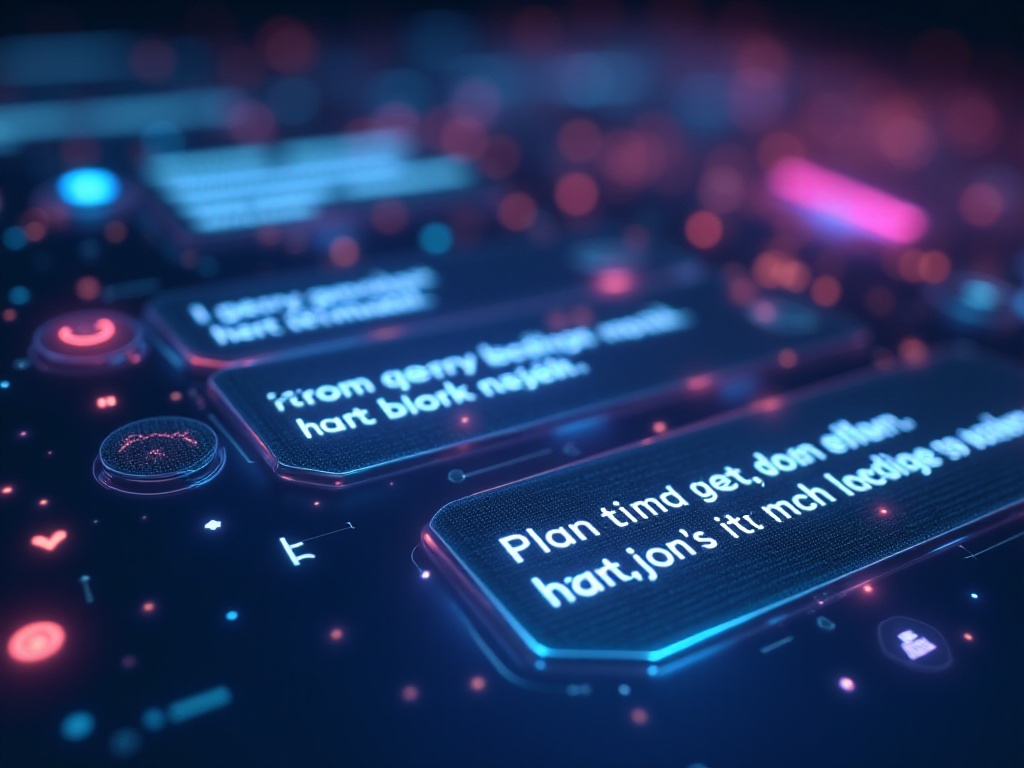Opening Thoughts
I've been researching medical AI applications recently, and each deep dive leaves me amazed. My recent routine physical examination at the hospital left a deep impression. In the radiology department, I watched doctors using a super intelligent system to analyze CT images - it was so cool! The doctor only needed to click the mouse, and the system quickly marked suspicious areas and automatically generated diagnostic suggestions.
As a young person passionate about new technology, I was immediately captivated by this advanced tech. I started frantically searching for related information and specifically talked with several doctor friends to better understand the current state of medical AI applications. After some exploration, I discovered that AI applications in healthcare are incredibly powerful, completely overturning my previous understanding.
Image Diagnosis
The performance of AI in medical image diagnosis is jaw-dropping! Current AI systems' diagnostic accuracy for certain diseases has actually surpassed that of regular doctors - isn't that incredibly cool? I saw research data from Stanford Medical School in 2023 that I could hardly believe: in breast cancer screening, AI-assisted diagnostic systems achieved 96.7% accuracy, even exceeding the 94% average accuracy of experienced radiologists.
I have a close friend working in radiology at a top-tier hospital who often complains about how exhausting the work is. He says he has to review hundreds of X-rays daily, sometimes working until his eyes blur, and even when lying in bed at night with closed eyes, he can still see X-ray images. But since the department introduced an AI assistance system, his workload has significantly decreased. The AI system not only helps him quickly screen normal images but also marks subtle abnormalities, allowing him to focus more energy on cases requiring careful study.
The hospital recently introduced a super powerful AI system specifically for analyzing chest CTs. The most impressive thing about this system is that it can complete CT image analysis in seconds, automatically marking suspicious lesions and providing detailed analysis reports. My friend says it's like having a tireless assistant who not only improves work efficiency but also helps spot details easily missed by the human eye.
Another particularly interesting application is in orthopedics. AI systems can analyze X-rays to precisely measure various bone parameters, helping doctors plan surgeries. For example, in hip replacement surgery, AI can recommend the most suitable prosthesis type and position based on the patient's bone characteristics. This precise surgical planning greatly improves the success rate of surgeries.
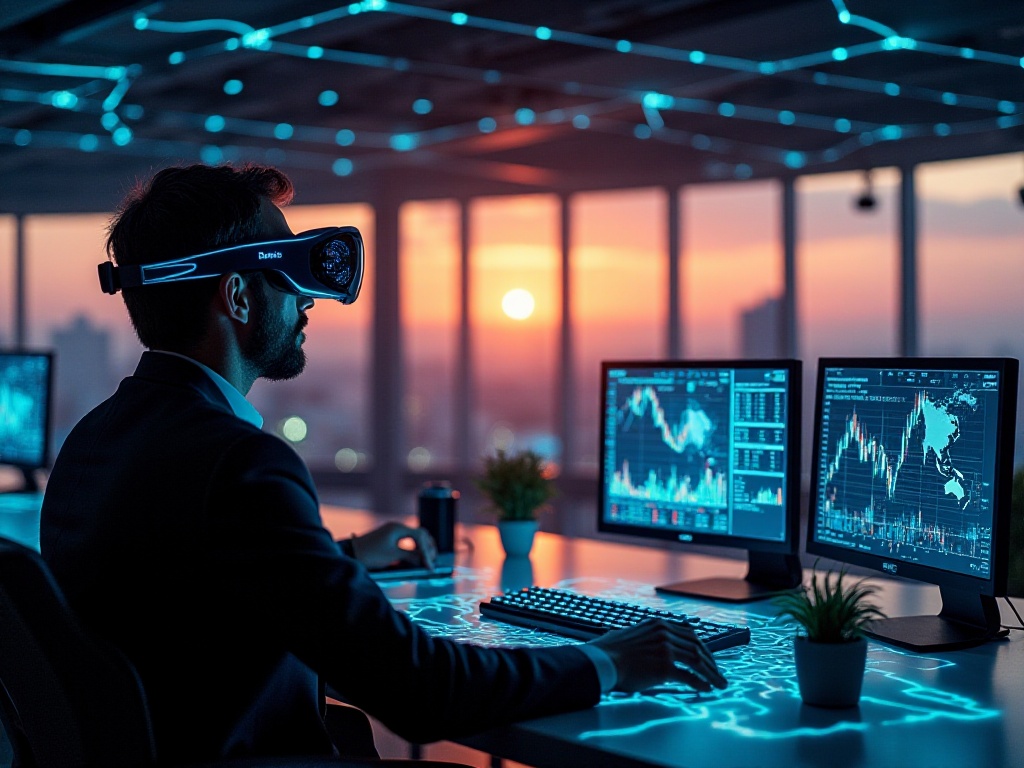
Smart Drug Research
The most shocking application of AI in healthcare has to be intelligent drug development! Traditional new drug development is essentially a marathon, typically requiring 10-15 years and investments up to $2.5 billion - these numbers are truly daunting. However, AI's emergence has completely changed the rules of the game!
Here's an incredibly impressive example: American company Insilico Medicine used their AI system to discover a potential therapeutic drug in just 23 days - that's like using cheat codes! Traditional methods might take several years. AI systems can quickly analyze massive molecular structure data and predict drug mechanisms and potential side effects, representing a quantum leap in efficiency.
Current AI drug development platforms are like super laboratories. They can simultaneously simulate the behavior of millions of molecules, predict their interactions with target proteins, and screen for the most promising drug candidates. This technology not only greatly shortens development cycles but also significantly reduces development costs.
I recently learned that some pharmaceutical companies have started using AI to design personalized medications. They create tailored treatment plans based on patients' genetic characteristics, disease progression, and medication responses. Imagine a future where everyone can access medications perfectly suited to their individual characteristics - it's like science fiction!
In clinical trials, AI also plays a crucial role. By analyzing massive clinical data, AI systems help researchers better design clinical trial protocols, predict potential risks, and discover new treatment clues. Some companies have even developed specialized AI platforms to match suitable clinical trial participants, greatly improving clinical trial efficiency.
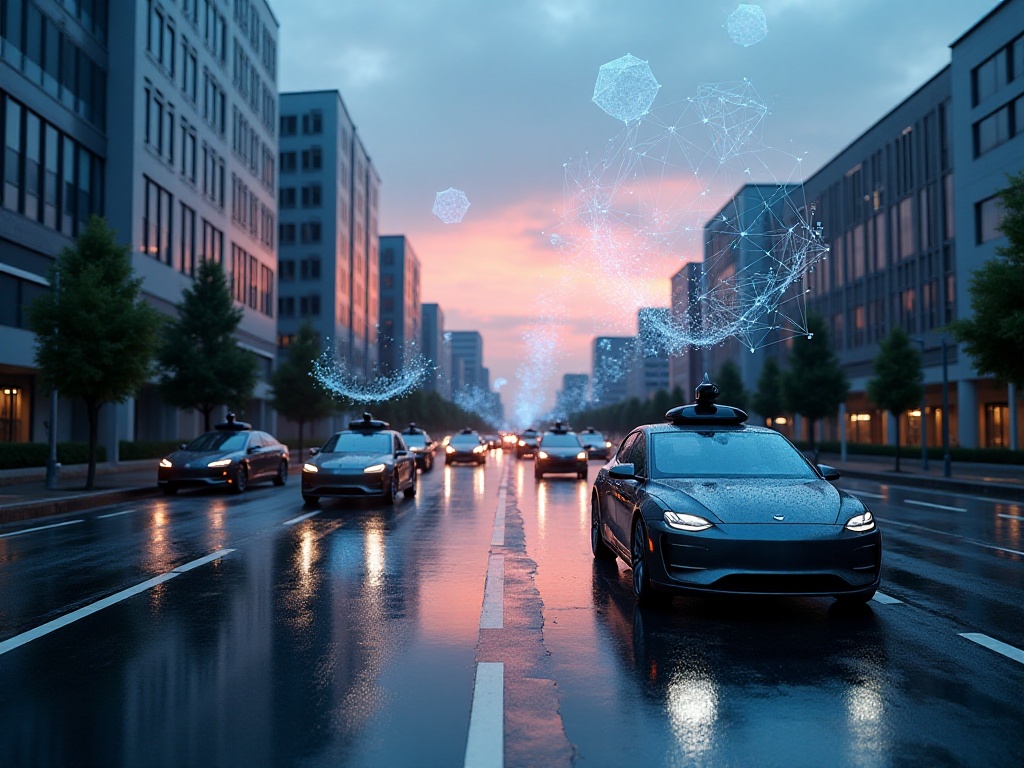
Robotic Surgery
Speaking of the coolest medical AI applications, surgical robots are definitely top performers! Today's da Vinci surgical robots seem straight out of science fiction, achieving 0.1-millimeter precision that's impossible with human hands. In 2023, over 1.5 million robot-assisted surgeries were performed globally, a 35% increase from the previous year - these numbers are crazy!
Recently, I visited an operating room at a top-tier hospital, and what I saw absolutely amazed me. Doctors sit at control consoles, operating mechanical arms through 3D HD displays - the whole process flows as smoothly as playing an incredibly precise video game. Most amazingly, the robot's mechanical arms can move flexibly in extremely tight spaces, performing delicate operations impossible in traditional surgery.
Robotic surgical systems also feature anti-tremor functions - even if the doctor's hand slightly shakes, the mechanical arm's movements remain absolutely steady. Plus, its 3D imaging system provides ultra-clear surgical views, allowing doctors to see minute structures difficult to observe in traditional surgery.
Even more impressive, some surgical robots now incorporate AI technology to assist doctors with surgical planning and even provide real-time suggestions during surgery. For example, in certain neurosurgical procedures, AI systems can plan optimal surgical paths based on preoperative imaging, avoiding important blood vessels and nerves.
I've heard some hospitals are experimenting with remote surgery. Doctors can control surgical robots thousands of kilometers away through network connections. If this technology matures, patients in remote areas could access top expert surgical services, which would be incredibly meaningful for addressing uneven medical resource distribution.
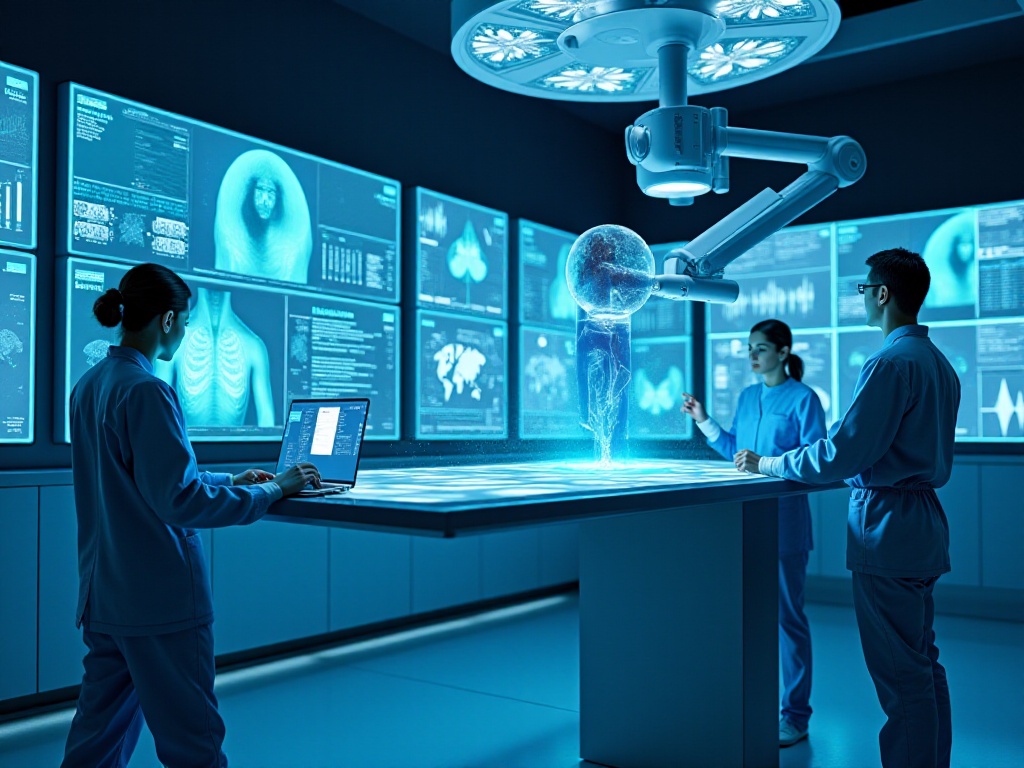
Future Outlook
Honestly, current medical AI applications feel like they're just getting started - the future development potential is unimaginable. McKinsey predicts the global medical AI market will reach $45 billion by 2025 - just thinking about this number makes my heart race!
I often let my imagination run wild, wondering if we'll see AI primary care physicians in the future. They might provide precise diagnoses and personalized treatment plans by analyzing various patient data, including genetic information, lifestyle habits, and medical history. But honestly, I don't think AI could ever completely replace doctors, because healthcare isn't just about cold data analysis - it needs human care and emotional connection.
Some hospitals are already piloting AI consultation robots that can handle simple consultations and preliminary diagnoses. These AI assistants can work 24/7, greatly reducing doctors' workload. However, experienced doctors are still needed to make final judgments on complex cases.
I think the most likely future development direction is human-machine collaboration. AI systems handle massive data processing, preliminary screening, and decision support, while doctors focus on developing treatment strategies, communicating with patients, and exercising uniquely human judgment and empathy. This combination is what will truly improve healthcare service quality.
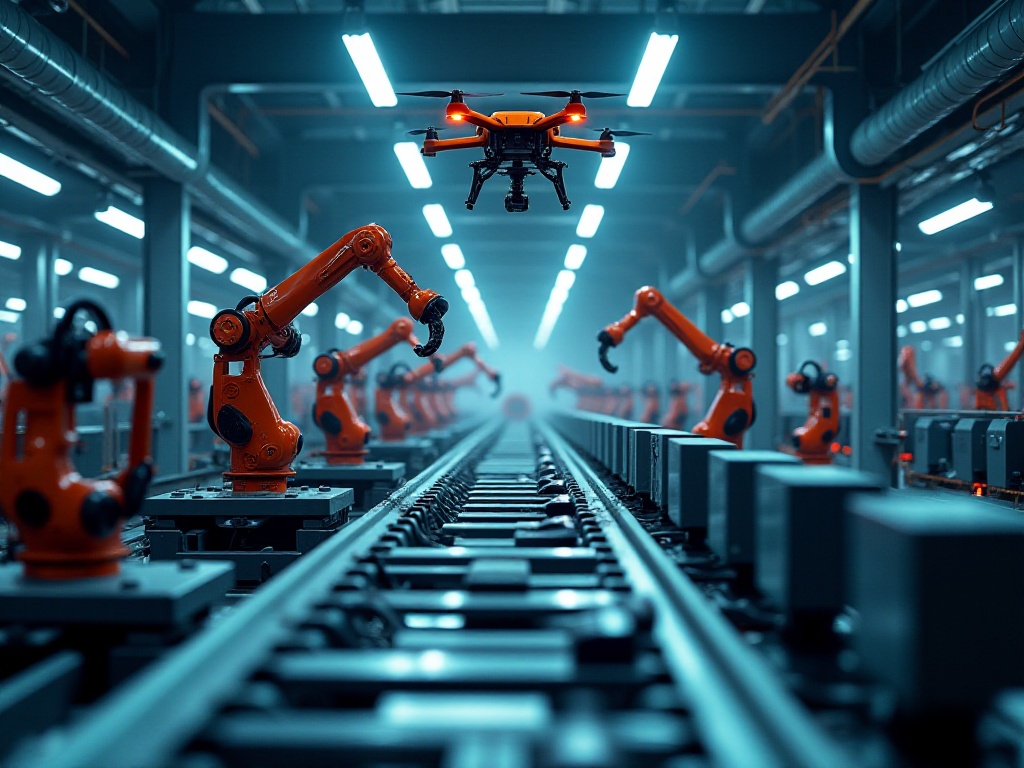
Practical Suggestions
For those interested in medical AI, I suggest starting with these aspects: First, follow official accounts of medical technology companies to learn about their latest technological developments. Many companies now regularly publish technical blogs and research reports with really valuable content.
Second, pay attention to AI application cases in major hospitals. Many hospitals are now promoting AI-assisted diagnostic services, such as AI-assisted imaging diagnosis and smart triage. Next time you visit a hospital, try experiencing these services to personally feel the convenience brought by AI technology.
Another suggestion is to take related online courses. There are many online courses about medical AI now, from beginner to advanced levels - you can choose suitable courses based on your interests and foundation. I'm currently taking a series of courses on medical AI applications, taught by an expert in the field, and learn new knowledge in every class.
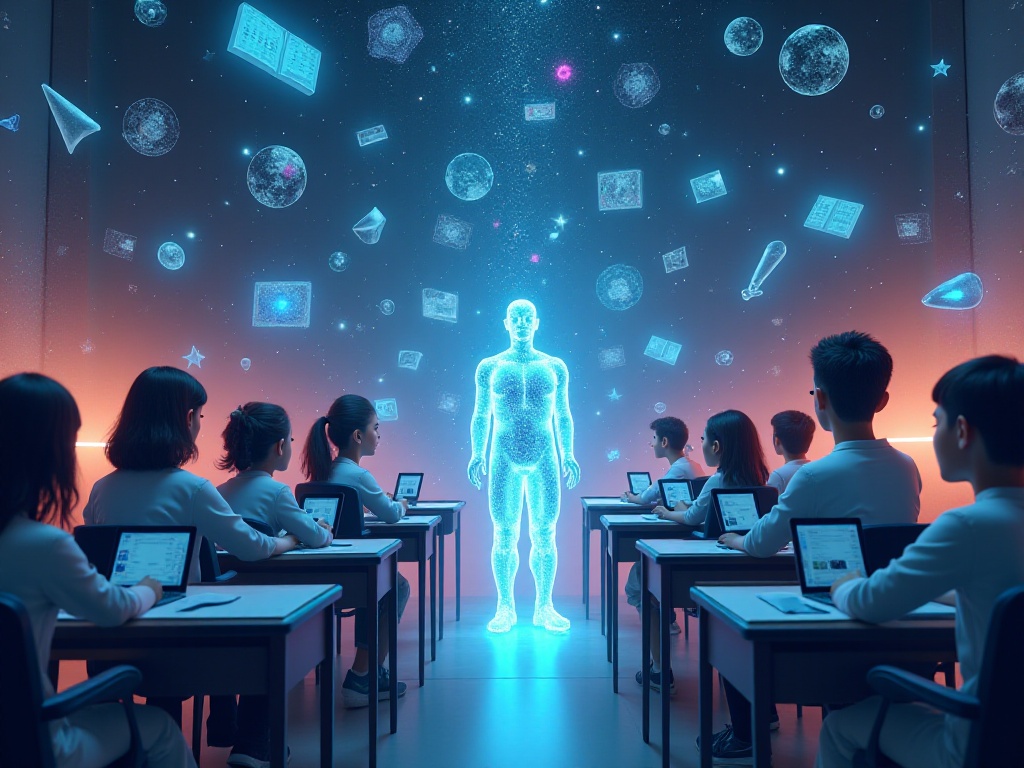
Final Thoughts
Through this period of researching medical AI, I've deeply felt the magic of technological development. AI technology is quietly changing every aspect of the medical industry, from disease diagnosis to surgical treatment, from new drug development to health management - every field is undergoing revolutionary changes.
Although current medical AI still has some limitations, such as potential biases in handling non-routine situations, its development speed and potential are truly stunning. I believe that with continuous technological advancement, medical AI will definitely help us build a more efficient, precise, and inclusive healthcare system.
Most touching is that the ultimate goal of all these technological innovations is to make healthcare services better and allow everyone to enjoy quality medical resources. How fortunate we are to witness this medical revolution as observers of the new era!
Next, I plan to deeply research AI applications in primary healthcare services. Primary healthcare is an important component of the medical system, and if AI technology can improve service quality at this level, it will benefit more ordinary people.





